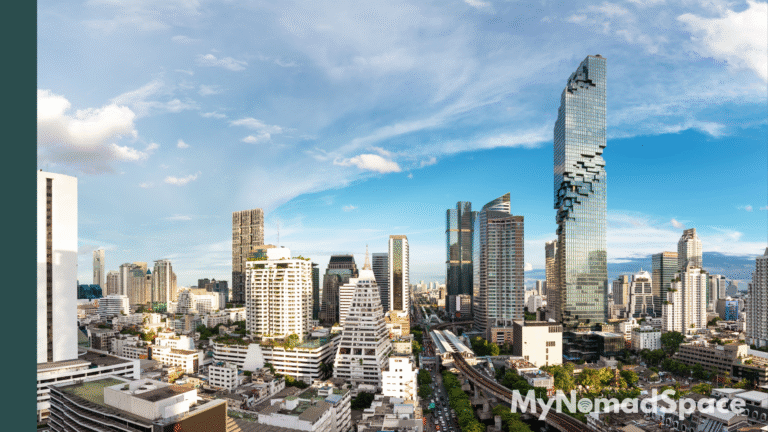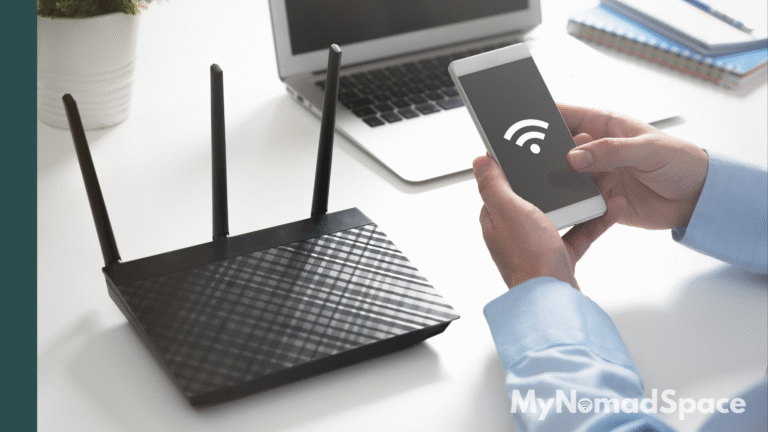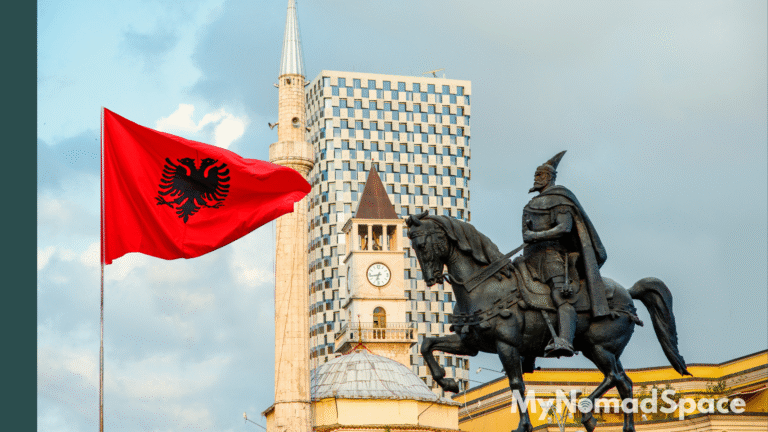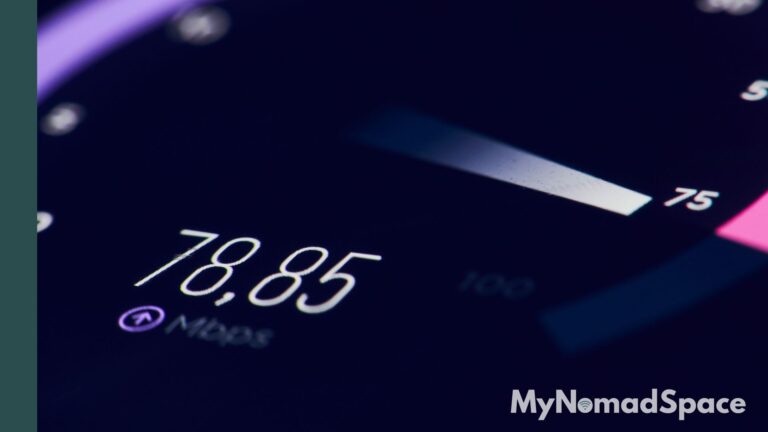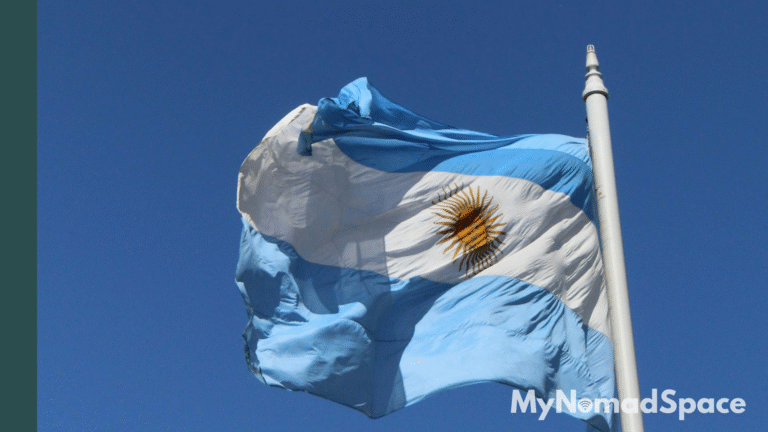If you’ve made it here, you’ve most likely heard of the term digital nomad, but have you ever heard of a digital slomad? This lesser-known phenomenon is quietly gaining popularity among location-independent travellers who prefer a different way of living while working and travelling around the world. Now, we’ll explore what slomads actually are, how they differ from traditional digital nomads and why this approach can improve the overall travel experience for those who choose this lifestyle.
What does slomad mean?
If you’ve made it here, you’ve most likely heard of the term digital nomad, but have you ever heard of a digital slomad? This lesser-known phenomenon is quietly gaining popularity among location-independent travellers who prefer a different way of living while working and travelling around the world. Now, we’ll explore what slomads actually are, how they differ from traditional digital nomads and why this approach can improve the overall travel experience for those who choose this lifestyle.
As you may have guessed, the term ‘slomad’ is a blend of the words ‘slow’ and ‘nomad’. Essentially, a slomad ultimately embraces a slower pace of life, taking the time to soak in the local culture, form genuine connections with their surroundings and truly live in a place rather than just pass through it.
This could mean staying in the same destination for months on end – or even longer. We do sometimes enjoy staying in one place for extended periods, because it gives us a chance to actually unpack our bags rather than live out of our suitcase, settle in and make the most of the location we’re basing ourselves. Plus, burnout is real (we’ve been there a couple of times), and slowing things down can have a seriously positive impact on your overall experience and wellbeing.
Digital slomad vs digital nomad
According to the conference paper “Digital Nomads: Lifestyle, Travel Behavior, and the Work/Leisure Balance” (Trihas & Papadaki, 2025), 58.4% of digital nomads reported staying in a single destination for one to three months, while the remainder – the slomads – opt for longer-term stays.
The difference between digital slomads and digital nomads lies in the mindset. Digital nomads chase constant new experiences and the freedom to move wherever and whenever they choose, while slomads focus on meaningful experiences, stability and deeper connections. Staying longer allows slomads to settle into routines, feel at ease and fully enjoy their destination without the constant pressure of planning or adjusting to new surroundings.
We’re not here to say that one is better than the other. Of course, life is too short, and there’s so much of the world to see. That’s why we tend to mix things up, depending on the destination we choose to visit. If we feel one place can suit us for a week or two, then we’ll do that. If we feel somewhere can provide a great base for an extended period, then we’ll opt for a longer visit.
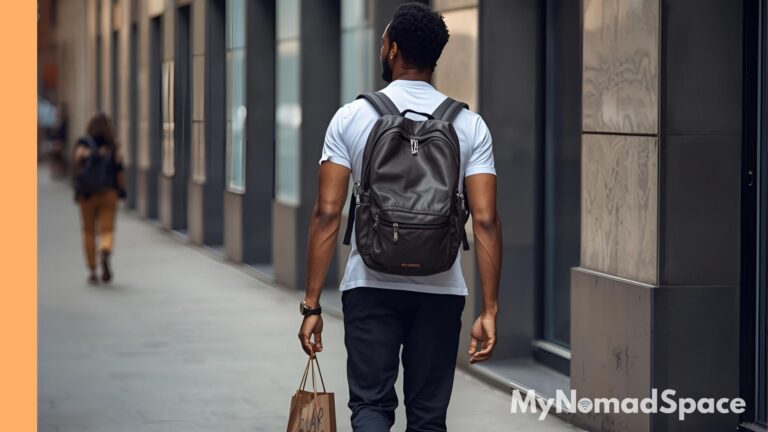
Benefits of slow travel for remote workers
Better work-life balance
Constantly moving, even if it is every few months or so, can be mentally and physically exhausting. Although Danny here at My Nomad Space finds the constant changes helpful for his mental health. But from navigating unfamiliar streets to finding where to buy the cheapest sim card, traditional digital nomad life keeps your brain in overdrive. Slomads slow down and create routines that boost productivity and wellbeing.
Visa advantages
Extended stays often require planning and research, but they come with great benefits like access to digital nomad visas (such as the Destination Thailand Visa – DTV) and longer-term tourist visas. Planning ahead allows slomads to live legally and comfortably in foreign countries while avoiding short-term travel hassles. It also provides peace of mind by ensuring clear expectations around entry requirements, length of stay and renewal processes, which makes managing work and travel schedules far easier.
Deeper cultural immersion
Slow travel encourages learning the local language, supporting local businesses (which we always advocate!) and participating in community life, whether through volunteering or attending local events. These are experiences that short-term travellers often miss. This approach makes travel richer and more rewarding by creating deeper cultural understanding, more meaningful relationships and a stronger sense of belonging in each destination.
Accommodation cost saving
Longer stays often mean lower accommodation costs, especially if you choose apartments. Monthly rentals are usually cheaper than nightly rates, and cooking at “home” helps cut down on dining expenses. Slomads can also benefit from local transport passes and take the time to find the best-value shops or markets in their area. This slower pace naturally leads to smarter spending and a more sustainable travel budget.
Improved mental health
A slower pace reduces stress from constant travel logistics. Routine and familiarity with your surroundings can improve focus for work, reduce anxiety and enhance overall wellbeing. With a little time, you’ll soon discover your flow. Settling into a place allows you to plan your days more intentionally, enjoy your environment fully and build habits that support both productivity and downtime.
Better travel planning and flexibility
When you aren’t constantly moving, you can plan excursions more strategically, discover hidden gems and truly experience off-the-beaten-path destinations without feeling rushed. We’ve certainly done that many times here at My Nomad Space, basing ourselves on less popular Malaysian islands like Pangkor and Tioman. Staying longer allows you to schedule activities around local events, and optimise your itinerary for a richer experience rather than scrambling to fit everything in at once.
Environmental benefits
We always try to do our part for the environment, and taking fewer flights and relying less on constant transport can significantly reduce your carbon footprint, which ultimately benefits the health of our planet. Slow travel is inherently more sustainable, which appeals to environmentally-conscious travellers. Over time, these small changes add up, making slow travel a practical way to explore the world.

Drawbacks of digital slomading
While the slomad lifestyle has many benefits, it’s not without its challenges. Staying in one place long-term can sometimes feel isolating, especially if you’re in a location with fewer expat or coworking communities. You might miss the excitement of constantly discovering new destinations or meeting fellow travellers along the way.
Additionally, longer stays require careful planning for visas, accommodation and budgeting, which can feel overwhelming for slow travellers. Navigating cultural differences and managing healthcare or unexpected expenses can also present challenges.
Some destinations may have limited experiences or social options, which can make it harder to maintain motivation or meet new people. Being away from friends and family for extended periods can also lead to feelings of homesickness or loneliness. Being aware of these potential downsides, which generally apply to all digital nomads, helps you prepare and make the most of your experience.
Embracing slow travel for a richer experience
Slomading isn’t for everyone, but for those who value slow travel and a balanced work-life approach, it can be incredibly rewarding. By staying in one place longer, you can truly immerse yourself in local culture, build routines that support productivity and enjoy your surroundings without the stress of constant movement.
Whether you’re a digital nomad seeking a calmer pace or someone curious about long-term travel, slowing down offers a richer, more sustainable way to experience the world. Give yourself time to settle and find your stride. For a slomad, the journey matters just as much as the destination.
FAQs
What is a slomad?
A slomad – or digital slomad – is a location-independent traveller who embraces slow travel, staying in one place for months or longer to live, work online and fully immerse in the local culture while building daily routines.
How does digital slomad travel differ from traditional digital nomad life?
Slow travel focuses on stability, meaningful experiences and authentic connections, while traditional digital nomads move frequently seeking new adventures.



